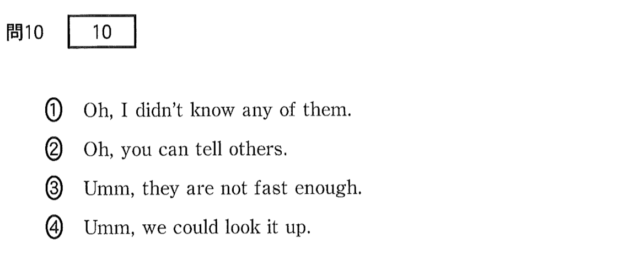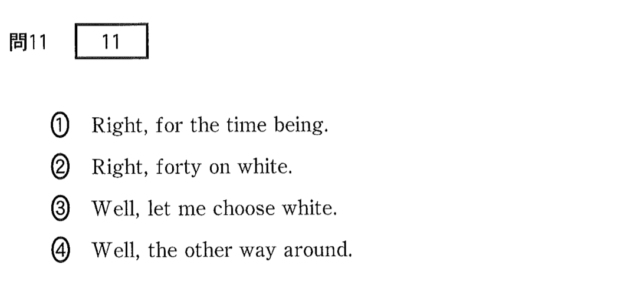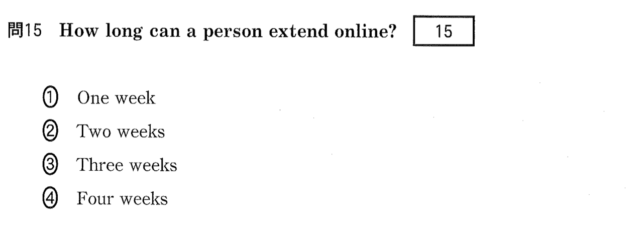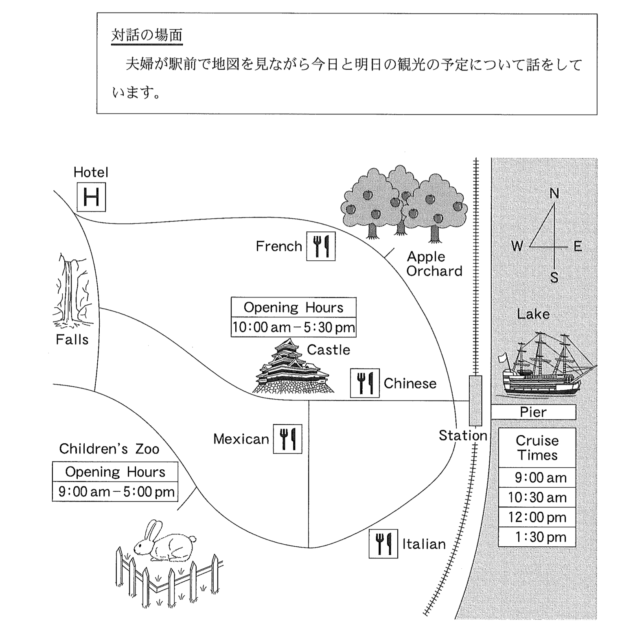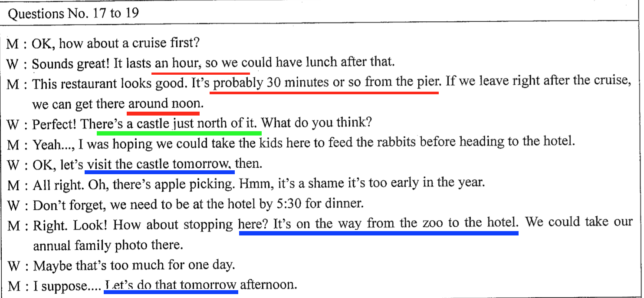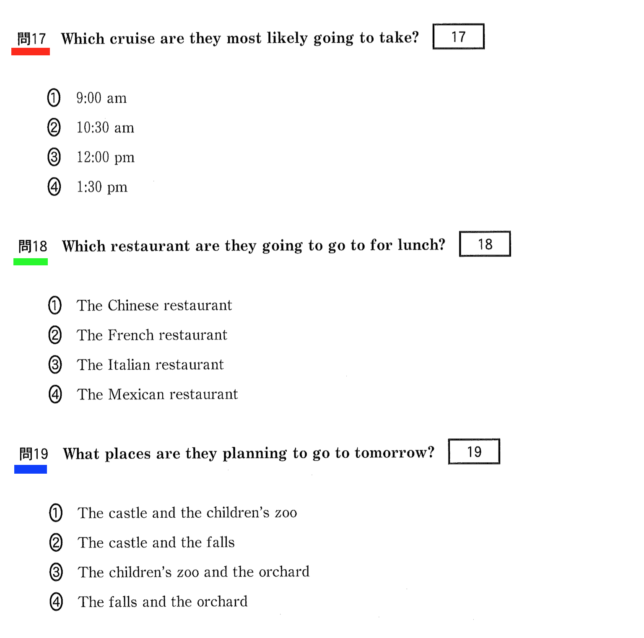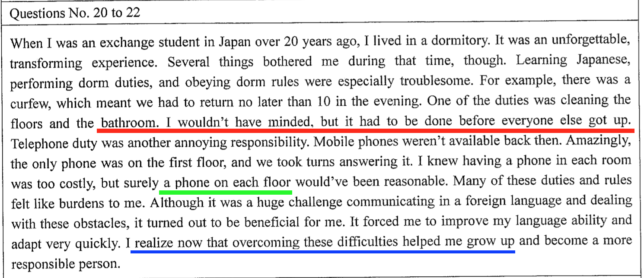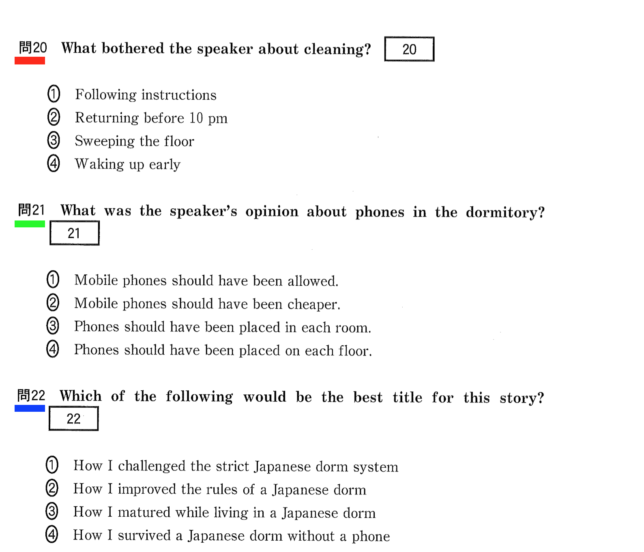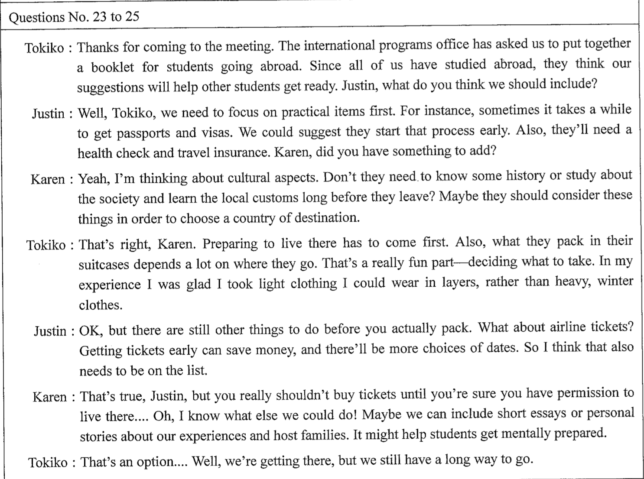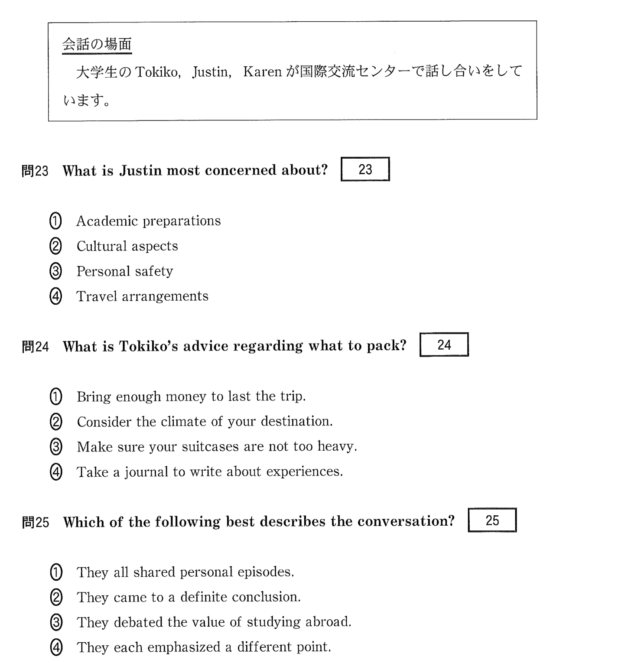Hello everyone,
Yesterday on the main teachers’ blog I talked about the first part of the Center Listening test. today I will go through a few more questions from other parts of the test.
Part 2
Question 10
The answer for this question is 4. The phrase “look it up” is a useful one. To “look up” means to find information from somewhere. We can “look up” information on the internet, “look up” words in a dictionary, or “look up” phone numbers in a phone book (but those have almost all disappeared).
Question 11
There is a lot of information in a very short script here. Students must catch “twice as many”, which means 2x, or double. But, they must also re-order the colours in the script.
Part 3
Question 15
I will be honest, I don’t like the English used in this question. Books from a library are “renewed”, not “extended”. To use “extended”, the script should have matched it with “deadline”. For example, “The deadline can be extended by a week.” Also , hearing the phrase “a week at a time” is difficult in the middle of the sentence. Tough question.
Questions 17-19
To solve this question effectively, students must use the preparation time to both look at the picture, and read the questions. Especially for questions 15 and 17, students need to make notes while they are listening. Question 16 is an easy question, but it is in the middle of a lot of other information. I have highlighted the script for where to find each answer.
Part 4
Questions 20-22
We again find some difficult synonyms in this question. To “get up” and to “wake up” in question 20 is ok, but “grow up” and “matured” in question 22 is quite difficult.
Questions 20-22
For the last listening, it is vitally important for students to take note of the characters names, and listen carefully to the transitions between them. For example: “Justin, what do you think we should do?” “Well, Tokiko, …” and “Karen did you have something to add?” Knowing who is speaking is important for character specific questions such as number 24. Tokiko starts and finishes the discussion, but her most valuable information is in the middle of the talk, where she speaks only once.
As for questions 23 and 25, the vocabulary of the questions is more difficult. In question 23, for example, the basic “travel plans” is written as “travel arrangements”. For that question, key words such as passport, insurance, and tickets are a good clue. In question 25, students will often pick answer number one, “shared” because the other verbs “came to a ~”, “debated”, and “emphasized” may be less well-known to them.
—-
Otsukare to everyone who took the test! The national average of the test was 23/50, a full 5 points lower than last year, and 10 points lower than three years ago. Being able recognize synonyms while listening and reading at the same time was an important part of this year’s test. Keep studying your kikutan!


